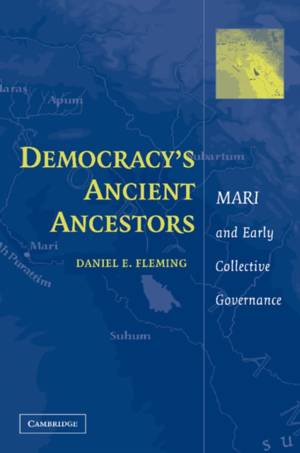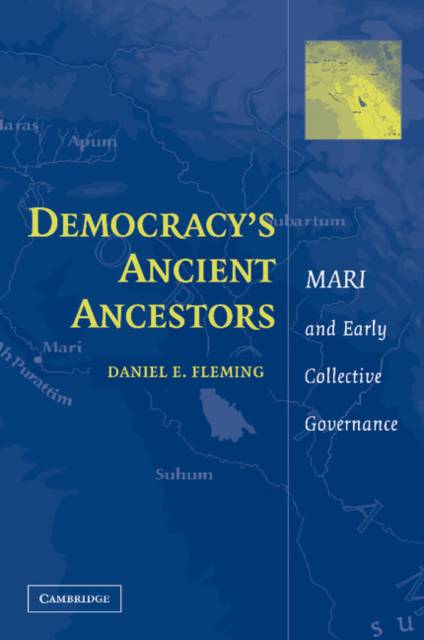
- Afhalen na 1 uur in een winkel met voorraad
- Gratis thuislevering in België vanaf € 30
- Ruim aanbod met 7 miljoen producten
- Afhalen na 1 uur in een winkel met voorraad
- Gratis thuislevering in België vanaf € 30
- Ruim aanbod met 7 miljoen producten
Zoeken
Democracy's Ancient Ancestors
Mari and Early Collective Governance
Daniel E Fleming
Paperback | Engels
€ 86,45
+ 172 punten
Uitvoering
Omschrijving
This volume examines the political landscape of the ancient Near East through the archive of over 3,000 letters found in the royal palace of Mari. These letters display a rich diversity of political actors, encompassing major kingdoms, smaller states and various tribal towns. Mari's unique contribution to the ancient evidence is its view of tribal organization, made possible especially by the fact that its king, Zimri-Lim, was, first of all, a tribal ruler who claimed Mari as an administrative base and source of prestige. These archaic political traditions are not essentially unlike the forms of pre-democratic Greece, and they offer fresh reason to recognize a cultural continuity between the classical world of the Aegean and the older Near East. This book bridges the areas of archaeology, ancient and classical history, early Middle and Near East, and political and social history.
Specificaties
Betrokkenen
- Auteur(s):
- Uitgeverij:
Inhoud
- Aantal bladzijden:
- 390
- Taal:
- Engels
Eigenschappen
- Productcode (EAN):
- 9781107404939
- Verschijningsdatum:
- 19/07/2012
- Uitvoering:
- Paperback
- Formaat:
- Trade paperback (VS)
- Afmetingen:
- 152 mm x 229 mm
- Gewicht:
- 571 g

Alleen bij Standaard Boekhandel
+ 172 punten op je klantenkaart van Standaard Boekhandel
Beoordelingen
We publiceren alleen reviews die voldoen aan de voorwaarden voor reviews. Bekijk onze voorwaarden voor reviews.








